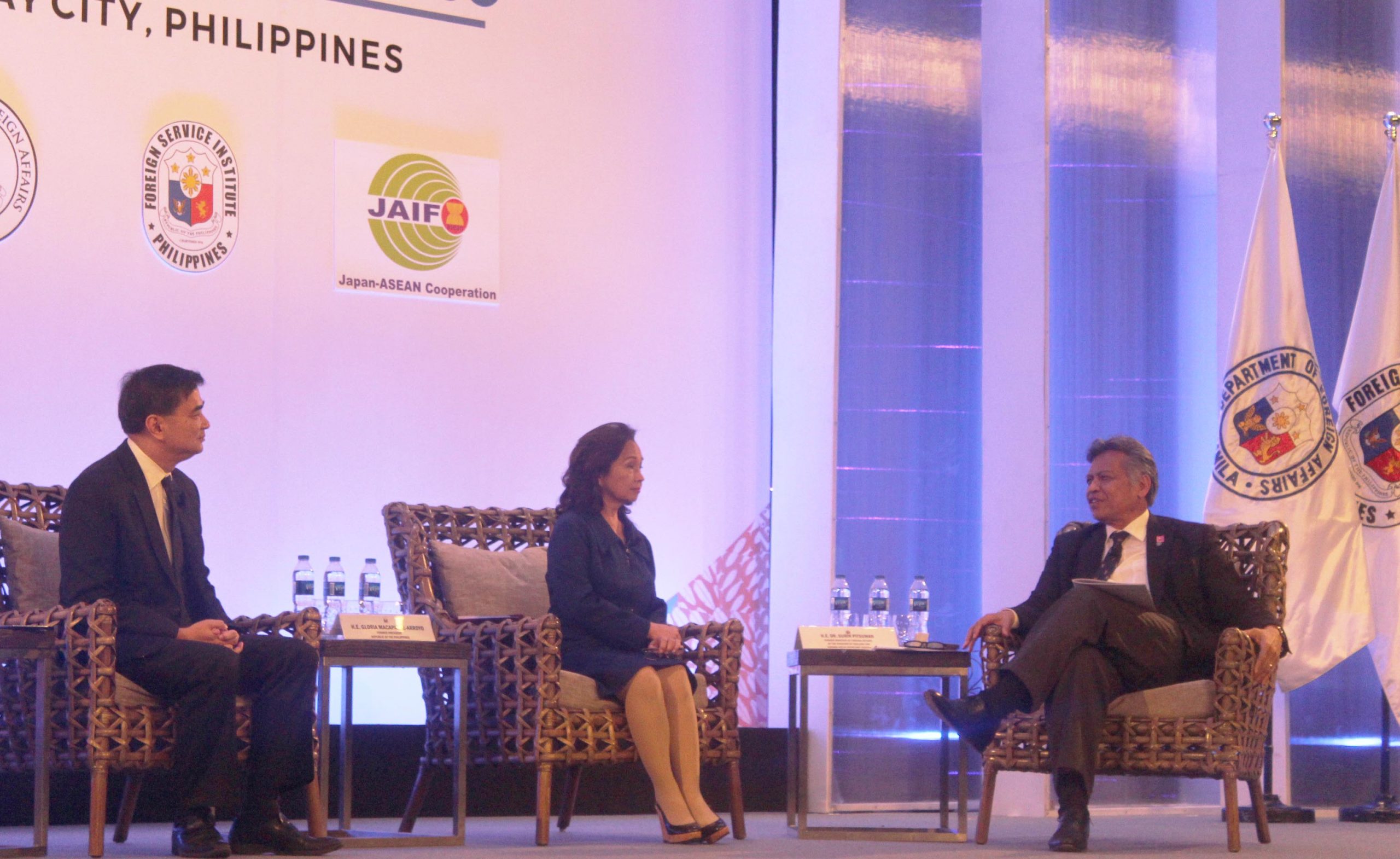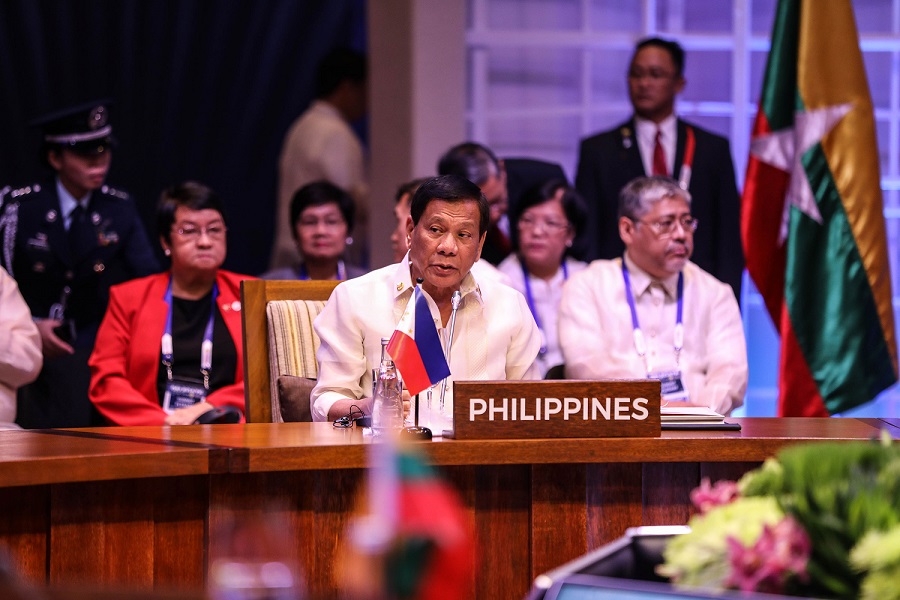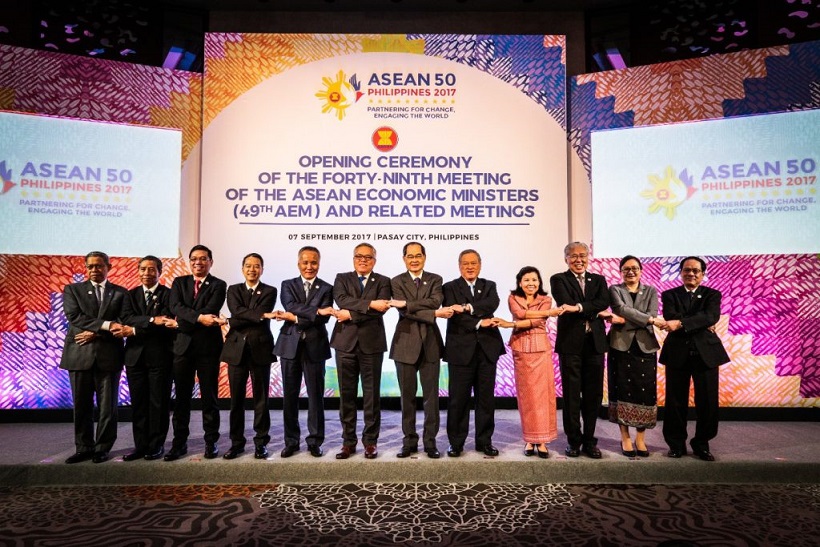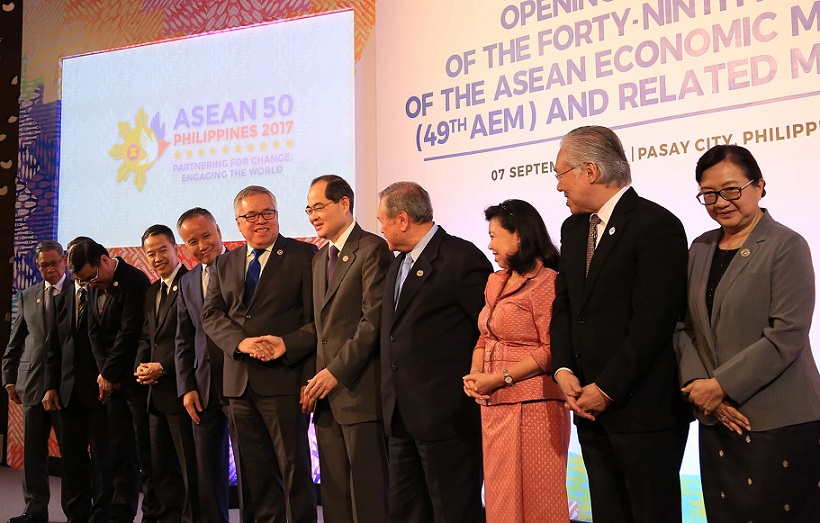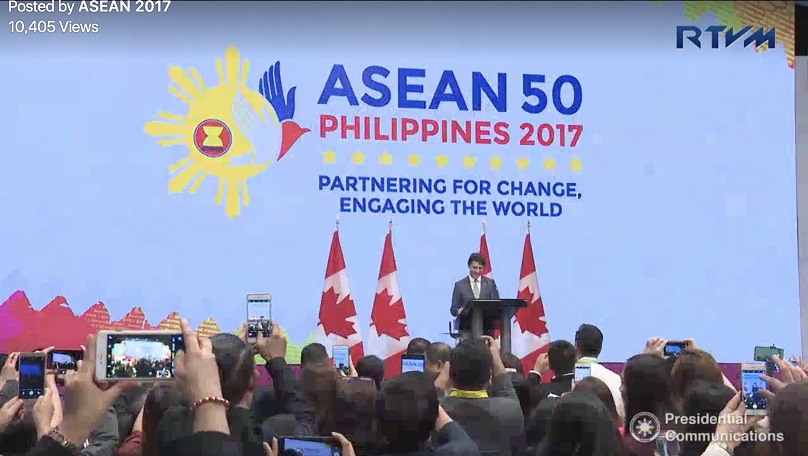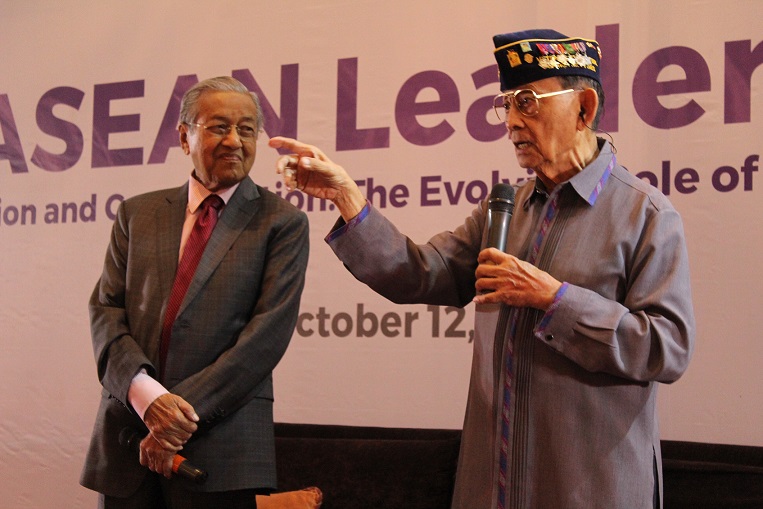Engage people more.
This was a key idea put forward by former leaders of the Association of Southeast Nations (ASEAN) during a high-level forum on Oct. 19 which aimed to take stock at what the regional bloc has attained and what it needs to do more as it celebrates its 50th year.
Former President Gloria Macapagal-Arroyo and former Thai Prime Minister Abhisit Vejjajiva, said wherever ASEAN is headed, it has to relate to the people of the region and “create some kind of identity.”
Vejjajiva, who served Thailand from 2008 to 2011, said: “We now have to, in a way, change direction,” noting that the Philippines has already conducted 245 meetings this year.
“I think we need less of this,” he said at the forum in Pasay City. “What we need more is perhaps not the number of projects but maybe even less projects, but projects that can somehow relate to people, create some kind of identity.”
ASEAN should talk less and do more, said Arroyo, who led the Philippines from 2001 to 2010. “We have to graduate (from) those declarations to something more concrete.”
She cited as an example the ASEAN Declaration on the Protection and Promotion of the Rights of Migrant Workers, signed in 2007, and said the instrument to implement this has to be set up.
Last February, ASEAN said it has moved closer to finalizing the draft instrument to implement the treaty.
A World Bank study said ASEAN is missing out on achieving real economic integration if it does not recognize and allow labor mobility for unskilled migrant workers. (See ASEAN can’t leave unskilled migrants out of integration)
Vejjajiva said the problem is when one talks of the ASEAN way, one thinks of the leaders and the government. “Civil society has to project (its) role in all of this.” (See VIDEO: What is ASEAN?)
Both leaders said ASEAN should tap more civil society groups in conversations, with Arroyo suggesting the use of social media.
Asked at the forum for suggestions beyond social media, Arroyo defended her answer. “They’ll have to want to be engaged more in ASEAN,” she said.
“There are (civil) society organizations that are interested in ASEAN and we should engage them, but for those who are not interested, I think we should go straight to the people,” Arroyo added, saying social media is the main medium that “helps us now to go to the people.”
Vejjajiva recommended that ASEAN pick “representatives of the people” who can “come and join the ASEAN process” and suggest what kind of agenda that ASEAN must do.
“How can we engage them more? Well for one thing I think you have to have greater relevance in what you do to people’s lives. Then they will naturally be keen to participate more,” he said.
But the 10-member ASEAN – Brunei, Cambodia, Laos, Indonesia, Malaysia, Myanmar, Vietnam, Singapore, Thailand, and the Philippines – is “so diverse” that it cannot satisfy everyone, former ASEAN Secretary-General Surin Pitsuwan said at the forum earlier in the day.
ASEAN should therefore engage people more in order to address and overcome the challenges in the coming years.
Surin recalled a time when then U.S. State Secretary Hillary Clinton, who, while was excited engaging with ASEAN, also commented, “We wish you could make decisions.”
“We adopt what we call the ASEAN way which means very slow, very deliberative,” he said. “The challenges of the new face of the next 50 years are not going to allow us to go through that process that would take a long time.”
In the ASEAN leaders’ forum Oct. 12, former President Fidel Ramos commented that leaders are veering away from the consensus principle, the ASEAN way of decision-making as inscribed in the ASEAN Charter. (See FVR says ASEAN veering towards majority rule to replace consensus in decision-making)
At the high level forum, former Foreign Secretary Delia Albert said it has always been a challenge to explain what the ASEAN way is, as “culture plays a very important in the way ASEAN makes decisions.”
She added that the ASEAN way involves trust building, and talking matters through was “the way we approach the issues because of our culture.”
ASEAN may bring in “a natural desire for people to own the ASEAN project” if it demonstrates unity and efficiency, suggested Surin. “If you make your work more relevant to them, you don’t need to invite them. They’ll come to you.”
